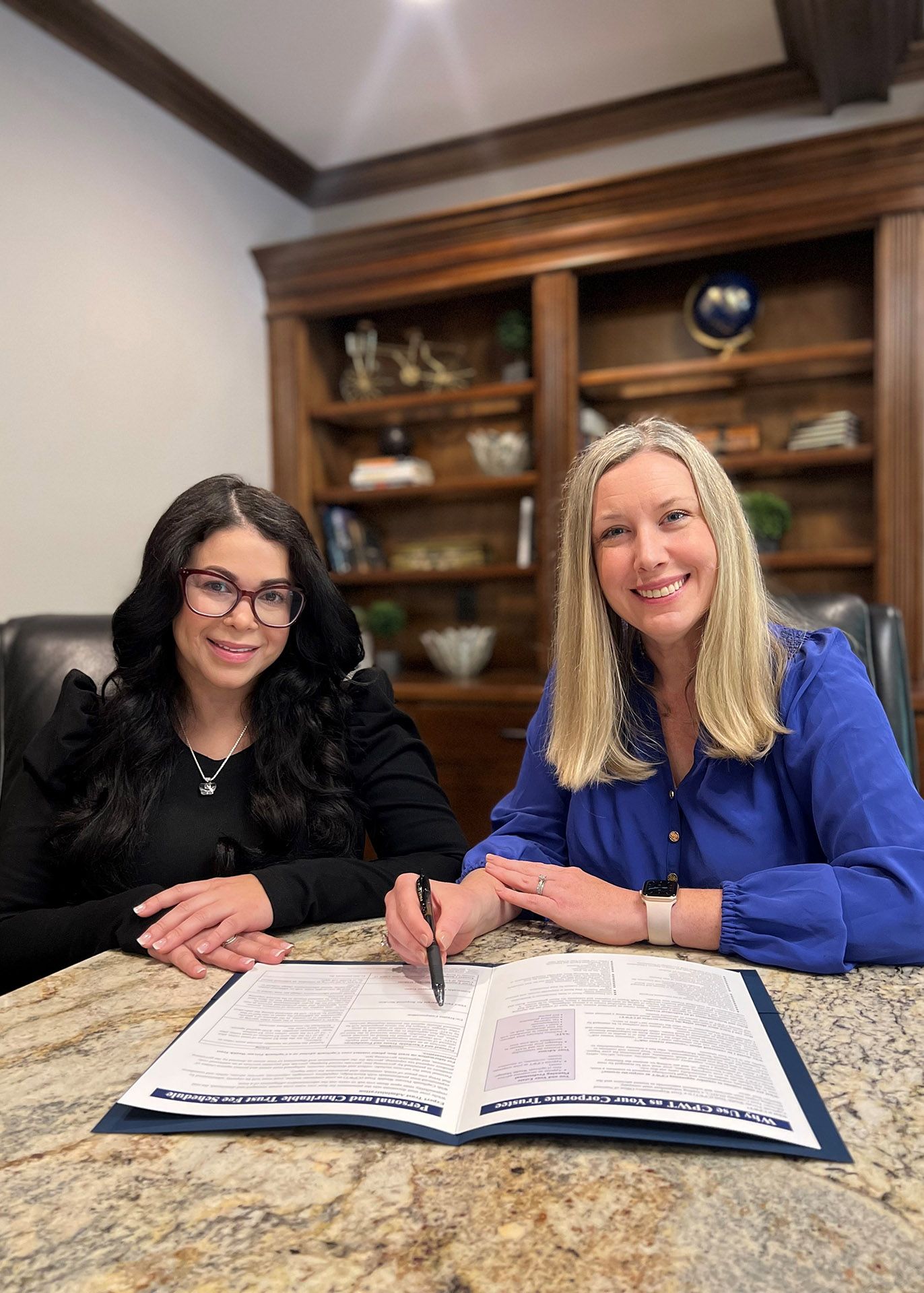Lessons For Any Season
When I was a kid, Roswell was but a small rural town about 25 miles north of Atlanta. Not at all the seamless expanse of Atlanta that it is today. Life seemed to move at a much slower pace then. News didn’t travel as fast, divided highways weren’t even a thing, and kids still used words like “sir” and “ma’am”. And there were consequences when those words weren’t used, as I can attest. Both of my parents worked outside of the home, and I spent a good deal of my summer breaks at Grandmom and Pop’s house. Pop worked the majority of his career at Lockheed Martin assembling airplane engines as I recall. Upon retiring from Lockheed Martin, he continued working in his other responsibility – that of a farmer. If it could be grown, they grew it. And if they grew it, they ate it. Every bit of it. Nothing went to waste.
Forty-five years ago this summer, I spent 24 hours with my grandparents that I’ll not soon forget. Nothing out of the ordinary and certainly not by today’s standards, anyway. It was just your run of the mill stifling hot day in June. But on this day observations were made, lessons were learned, and the takeaway has never been forgotten. Some lessons may be learned the hard way, folks may say. That is, from personal and painful experience. And then other lessons aren’t hard at all. They’re blessings, actually. (Maybe they’re both blessings. An article for another day, maybe.) Both can be experiences that leave a mark and one you won’t soon forget. Financial lessons are no different in that regard. You learn them, you remember them, and you instill the virtue of a lesson learned with those you love.
In my tenure as an advisor working with clients and 401(k) participants, there’s a certain sensibility, and I’m speaking in generalities here, that my more seasoned (older) clients seem to live with than maybe my younger clients. That is, clients representing an older generation tend to appear more comfortable with financial pressures or realities? And why would that be? Is it merely the fact they made it through them? Mmm…it goes deeper than that, I think. I’ve compiled a small list of common life and financial life lessons I’ve heard (and learned) from my elders:
- It’s better to go to bed wanting, than owing. And of course we’re talking about debt. Did you know we’re currently at an all-time high in our country for consumer debt? The largest increase coming from – you guessed it – credit card debt1. And the irony is that particularly in times of higher inflation, you’re better served paying down debt, not increasing it. While your single dollar won’t buy nearly as much as it used to, that same single dollar will still pay off one single dollar of debt. My clients talk of the lack of patience or the need for instant gratification in some of their much younger family. A common response to a want or need from the younger generation if they don’t have the cash? “I’ll just charge it.” For many of our parents or grandparents, there was a time when instant gratification wasn’t even a thing. Gratification was more about the receipt of the blessing rather than the timing of it. With respect to what you’d like to have and what you’d like to have now, consider, it’s better to go to bed wanting than owing.
- It’s about When and How Much. Ruminating on regret may lead to helplessness, depression, low self-esteem and may create the perfect environment for anxiety. (Just ask me. I can tell you all about it.) The two most common financial regrets I’ve heard from folks in their later years: I wish I’d saved more, and I wished I’d started earlier. You may recall hearing the following from your elders when you were your children’s or grandchildren’s age, “You need to be saving your money.” (Side note: I said that twice yesterday to two different kids.) Why do you think older folks are always saying that? Because they know the importance of being good stewards of their money, and more likely, they were young once. Older folks were raised in a completely different world than my teenagers and young 20 somethings currently are. Our parents and great grandparents spoke from experience, from scars, or perhaps from the appreciation of making wise decisions. If you’re reading this article, it’s almost a guarantee that your elders didn’t take financial (or life) advice from an 18-year-old social media influencer peddling purses or fat-loss routines. (Don’t get me started.) As one client told me, “Have the discipline to start saving now for the life you want to live in the future. Your future self will thank you.”
- List for Living. In 2023, there was an article published by The Legacy Project: Lessons for Living from the Wisest Americans. Sweet Ms. Verna, 91, wrote a List for Living for her great grandchildren. I’m quite confident none of us reading this article have attained 91, so let us marinate on a few points of her wisdom, shall we?
a) So many things in the world have changed since the time of my grandparents and parents and the earlier times of my own life, and I know that there will be lots of changes in your lifetime too.
b) I hope you will be a positive thinker, not negative or cynical; look for the good in people and things, and fill your life with love, kindness, and thoughtfulness for others.
c) Most important is to know God as you go into the future. I would hope that you will know the peace and joy and courage that comes from following a life of love and service – the peace that passes all understanding.
d) Your real success in life lies is the kind of person you become, not with how famous or wealthy you are, so my most sincere wish is for you to live the wholesome life that will lead you to make good choices along the way… You can do it.
It stands to reason the period you grew up in has a lot to do with how you filter life experiences. My grandparents were teenagers in the Roaring Twenties and were 20 somethings during the bleak years of the 30s. As many have learned – though it’s possible some reading this may have had little exposure to The Great Depression – the 30s were a decade of economic volatility, if not misery. The unemployment rate (defined as the percentage of people in the labor force who do not have a job but are actively looking for one) was in the mid-teens for nearly half the decade and in the low to mid 20s for the rest! Without a doubt, my grandparents faced an economic reality that I can only imagine, but not fully appreciate. But theirs was an experience they wanted their children and their grandchildren to learn from. And that brings us back to that hot day in June…
Pop said he needed my help in the garden and that I should spend the night with him and Grandmom. Sure! I get to stay up and watch the news, talk sports with Pop, eat home-made chocolate pie? The garden? Okay, whatever. I’m sure I was lukewarm to that part of the itinerary. What, throw a little dirt around? Look for crickets? Whatever, it’ll be fun. (Yeah, I know. I’m smirking as I type these words.) At 5:00 the next morning, he woke me up. He was already in his overalls, shaven, and with biscuits in the skillet. (skillet: n. a frying pan.) I stumbled into the kitchen to see Pop stirring the eggs in the other skillet that had just been used for the patty sausage. While I’m struggling to put the strawberry preserves on my biscuit, Pop was opening the screen door to the yard with his red handkerchief in his back pocket. We were in that garden for two hours and both nearly dying of thirst, exhaustion, and hunger. (smirking again) Pop hadn’t broken a sweat. His day had barely begun. And the only words he said to me up to that point were, “Pick the ones that are turning purple and put them in the bucket. When the bucket’s full, take them to your Grandmom.” “Yes sir!” was the expected and only acceptable response in the moment. Though, what I wanted to say was, “I can’t do this anymore. My back hurts. It’s too hot. When do we eat lunch? What time is it? What just bit me?! When is my mom coming to get me?” But alas, it was just me, Pop’s silence, and the unmistakable sound of cicadas in the June heat. Halfway into that bucket, Pop came up to me and said, “Why don’t you go to the porch up yonder and help your Grandmom snap peas.” “Yes sir!” was my enthusiastic reply. He knew. And I knew. I was not accustomed to this kind of work. The only kind of work that my grandfather knew. Hard work. Necessary work. Work to be grateful for. And he handled it like Pop would. With understanding, but only after the weight of the experience settled upon my sunbaked neck. (I’m being melodramatic you say? You get out there in the garden for two hours, then. You’ll see. Now you’re smirking.) A lesson from one generation to another. Providing can be difficult, uncertain, and uncomfortable. But it has to be done. And it’s a lesson that has to be passed down.
You’ve learned lessons along the way.
Which ones are you passing down to those coming up behind you?
On this day, a way of life was observed, and lessons were learned that have been passed down to my boys these many years later. And I’d give anything to see that red handkerchief in the garden again. I believe one day I will. And I’ll thank him for what he taught me that day.
To further discuss this article or to learn more about how CapSouth Wealth Management can help, click here to visit our website, or call 800.929.1001 to schedule an appointment to speak with an advisor.
Investment advisory services are offered through CapSouth Partners, Inc, dba CapSouth Wealth Management, an independent registered Investment Advisory firm. Information provided by sources deemed to be reliable. CapSouth does not guarantee the accuracy or completeness of the information. CapSouth does not offer tax, accounting, or legal advice. Consult your tax or legal advisors for all issues that may have tax or legal consequences. This information has been prepared solely for informational purposes, is general in nature and is not intended as specific advice.
- (Americans are Carrying Record Household Debt into 2024, Market Watch, Jan 24, 2024)



